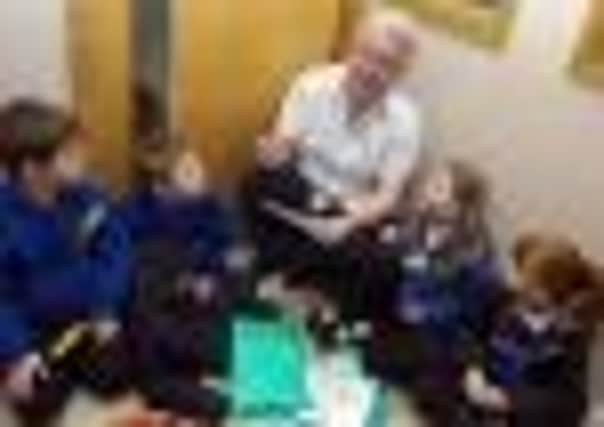Ian McMillan: Please hear my kall and start telling some tales


I’m not putting myself up as a Darfield version of James Dyson here, inventing three things each morning, it’s just that every so often a light bulb glows briefly and brightly above my head and I have an idea and I just have time to scrabble for a pencil and write down the bones of it before the light flickers and fails.
Years ago, I had an idea that was to do with that favourite South Yorkshire pastime of kalling. To kall is to gossip, to chew the fat, to pass the time of day with stories and anecdotes.
Advertisement
Hide AdAdvertisement
Hide AdI remember standing impatiently with my mam on interminable Saturday mornings in Wombwell as she stood and kalled with her mates. I’d listen to the cadence of the stories and after a few minutes the dying fall of the rhythm would convince me they’d almost finished, but then they’d all laugh at the same time and start again and the bus we should have caught back home would trundle by and we’d have to wait for the next one, which would mean there would be a lot more time for kalling.
I was forcibly reminded of this when I was organising writing workshops all over South Yorkshire in the early 1980s. I was often irritated by the number of people who hadn’t really come to write, they’d come to kall.
Somebody would read an epic ballad about working down the pit and that would set the rest of them off. It wouldn’t set them off talking about the finer textual complexities of the piece we’d just heard; no, they’d want to talk about their own time down the pit or their dad’s decades at the coal face.
I could see them listening impatiently to other people’s stories, waiting like greyhounds in the trap for the tale to finish so that they could leap in and start theirs.
Advertisement
Hide AdAdvertisement
Hide AdIt was just like being stuck in Wombwell with my kalling mam again, I would get frustrated and grumpy and try to bring them back to the poem but I was young and they were masters and mistresses of the dark arts of Holding Forth Without Being Interrupted learned over decades in union meetings and loud family gatherings.
They’d pause when nobody was expecting a pause, they’d take a breath halfway through a word and say things like ‘if I could just finish this point...’ when they’d started it at least half an hour before.
In the end, I had The Idea, which basically boiled down to If You Can’t Beat ‘Em, Join Em. If people like to tell anecdotes, then why not start The Anecdote Theatre? I could see it in my mind: it would be a caravan, parked up somewhere near Barnsley Town Hall.
There would be a sign that said ‘Tell Us Your Tale’ and inside there would be a table. I’d sit at one side and invite an anecdote.
Advertisement
Hide AdAdvertisement
Hide AdSomebody would sit the other side and tell the tale. I’d then pick up the baton of the story like a relay runner and pass it on to the next person who came in, who would tell me a story in return, and the passing on would continue and grow. It would be like a Story Bank, an Anecdote Depository where you could leave your stories for others to enjoy. What a great idea! I felt like I’d invented the wheel, or at least the tin opener.
Sadly, like most of my ideas, it stayed at the idea stage. I almost applied for some money to see if I could make it happen but then I got distracted and The Anecdote Theatre remained one of my great untested notions, like the Sparrow Post and The Scooter That Ran On Soup. But then the other day, in the Trades Club in Hebden Bridge, I sat in a real Anecdote Theatre and realised that the idea had come full circle.
I was at an event called True Stories Told Live, which is an idea that began in America and spread to London and it’s now popping up in Cardiff and Southampton and, just now, Hebden Bridge.
All that happens is that somebody gets up and tells their story and the only rules are that it must last 10 minutes, it has to be true and you can’t have notes. Someone told a tale and then I told a tale and then somebody else told a tale. The audience sat at tables and listened and clapped and laughed and the next time they do it some people from that audience will be telling their own tale. And only now, in middle age, do I realise the importance of a lovely anecdote, told well.
Maybe I’ll revive the idea of the Scooter that runs on Soup. Now there’s a story...